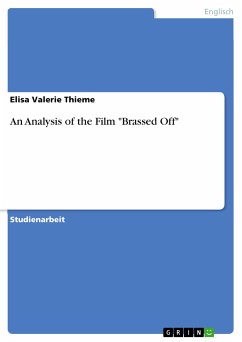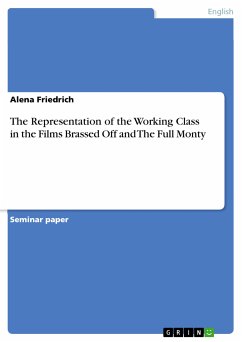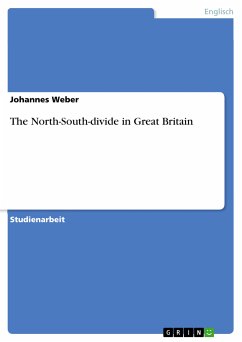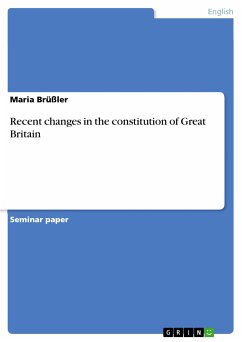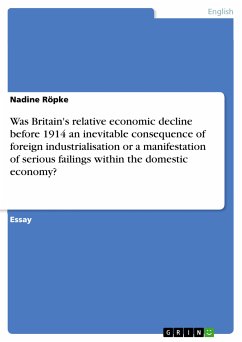Studienarbeit aus dem Jahr 2013 im Fachbereich Anglistik - Kultur und Landeskunde, Note: 1,7, Johannes Gutenberg-Universität Mainz (Department of English and Linguistics), Veranstaltung: The North of England, Sprache: Deutsch, Abstract: In 2001, Paul Marris argued in an essay which appeared in Cineaste that the tradition of “northern realism” could be traced back to Elizabeth Gaskell’s social problem novels which announced many of the themes and approaches that have underpinned the traditional representation of the North up to the present: a documentary interest in the industrial urban districts; a realism which is in tension with melodramatic devices; the incorporation of elements of demotic speech; a continuing association between northerness and the industrial working class; [and] a portrayal from the vantage point which is not wholly within. The reliance on stereotypes is probably partly related to the fact that most works of art, documentaries and studies concerning the northern working class have been written and conducted by members of the middle class. Therefore, general notions about the working class are often arrived at by following track of “what the middle class thinks of it”. According to Ian Christie, “British cinema’s most successful genre of the 90s [was] the tragicomedy of urban survival”. Particularly “northern film always [aroused] certain expectations [and was often] a site for debating serious moral, economic and social issues”. Along with films, such as Trainspotting (Danny Boyle, 1996) and The Full Monty (Peter Cattaneo, 1997), the movie Brassed Off (Mark Herman, 1996) certainly belongs into this genre of northern tragi-comedy. It is a Channel Four film production which made use of “a popular (. . .) format with two or three star names and a host of British character actors [and] is situated at a moment of closure of one of the Yorkshire coalfields”. Interestingly, Brassed Off is set in 1992 but was in fact produced in 1996 and one might argue that some “extra sharpness . . . might have been acquired [if the] script had been made in the 1980s, when the industrial north was truly in the grip of recession” and that Brassed Off is “almost a period piece”. Bromley states that Brassed Off’s “works within a number of staple and formulaic conventions of workingclass representation: regional, masculine, industrial, brass band”.
Bitte wählen Sie Ihr Anliegen aus.
Rechnungen
Retourenschein anfordern
Bestellstatus
Storno

